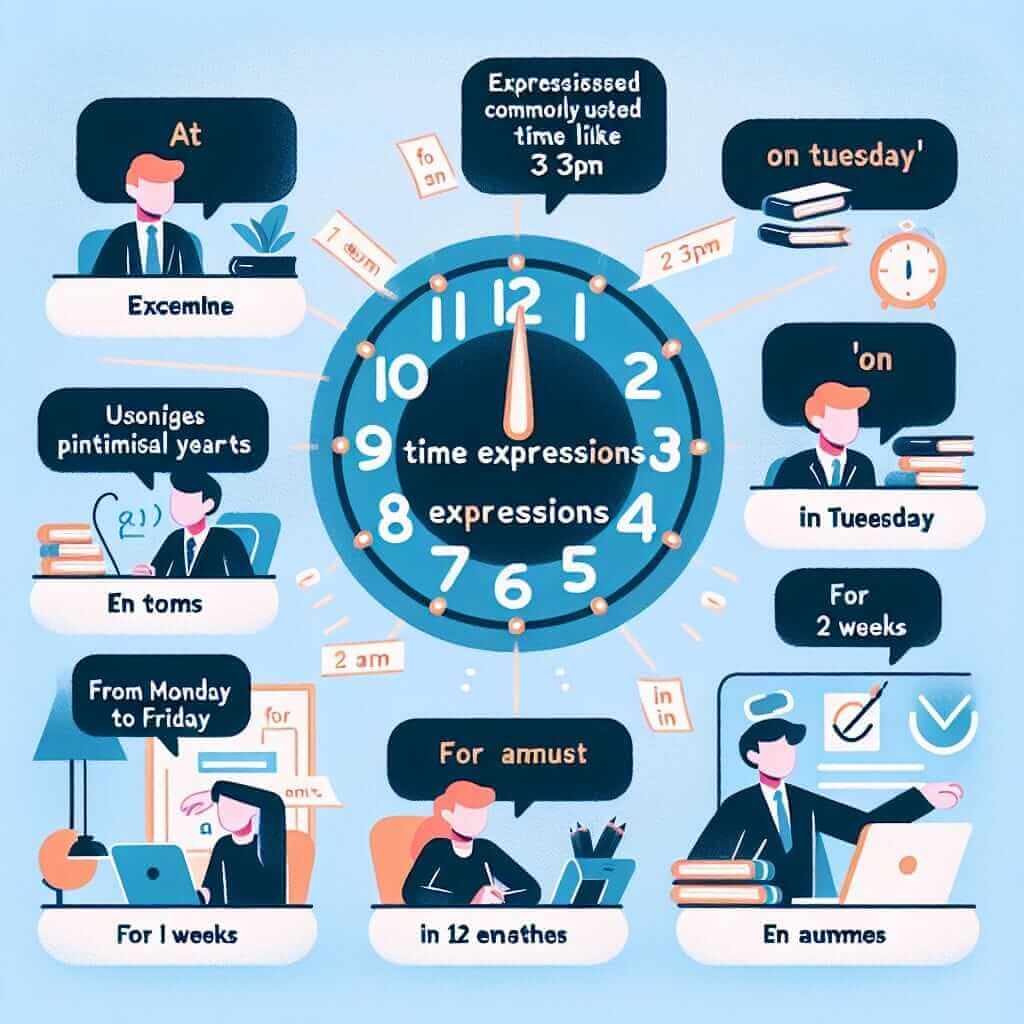As an IELTS instructor with over two decades of experience, I’ve witnessed countless students grapple with the intricacies of the Listening test. One area that often trips them up is understanding and accurately recording time expressions. Whether you’re aiming for a band 7 or striving for a perfect 9, confidently navigating time in the IELTS Listening section is crucial. This comprehensive guide will equip you with the knowledge and strategies to do just that.
Why is Understanding Time in IELTS Listening Important?
The IELTS Listening test assesses your ability to understand spoken English in various contexts. Time, a fundamental element of communication, frequently appears in different forms – from simple expressions like “in the morning” to more complex ones involving durations, timetables, and historical references.
Failing to grasp these nuances can lead to:
- Incorrect answer choices: Misinterpreting a time expression can easily lead you to select the wrong answer, even if you understand the overall context.
- Confusion and loss of focus: Struggling to decipher time information can disrupt your listening flow, impacting your performance on subsequent questions.
Deciphering Different Time Expressions
The key to mastering time in the IELTS Listening test lies in familiarizing yourself with the diverse ways it’s expressed.
1. Common Time Vocabulary:
Brush up on everyday terms like:
- Parts of the day: morning, afternoon, evening, night, dawn, dusk, midday
- Days of the week: Monday, Tuesday, etc.
- Months of the year: January, February, etc.
- Time periods: decade, century, millennium
2. Prepositions of Time:
Pay close attention to prepositions:
- At: for specific times (at 3 p.m., at night)
- On: for days and dates (on Tuesday, on the 15th of March)
- In: for months, years, seasons, and parts of the day (in August, in 2023, in spring, in the morning)
3. Expressing Duration:
Be prepared for various ways to express how long something takes:
- For: indicates a period (for two hours, for a week)
- During: implies something happening throughout a specific time (during the summer, during the meeting)
- From… to/until: specifies a start and end point (from Monday to Friday, from 9 a.m. until noon)
4. Time-Related Phrases:
Be alert for phrases that provide time clues:
- In advance: before a specific time or event
- Prior to: similar to “in advance”
- Subsequently: after something else
- Following: similar to “subsequently”
- Approximately: around a certain time

Applying Your Knowledge: Examples from IELTS Listening
Let’s look at how these time expressions might appear in the IELTS Listening test:
Example 1:
Speaker 1: The exhibition opens on the 20th.
Speaker 2: And it runs for how long?
Speaker 1: For three weeks, closing on the 10th of the following month.
- Key Information: The exhibition starts on the 20th of a month and continues for three weeks, ending on the 10th of the next month.
Example 2:
Speaker: The workshop is scheduled for next Tuesday from 2 p.m. to 4 p.m. Please arrive 15 minutes in advance for registration.
- Key Information: The workshop will take place on the following Tuesday, lasting for two hours (2 p.m. to 4 p.m.). Participants are advised to arrive at 1:45 p.m. for registration.
Tips for IELTS Listening Success:
- Active Listening: Focus intently on the audio, paying close attention to time-related vocabulary and phrases.
- Note-Taking Practice: Develop a system for jotting down dates, times, and durations. Use abbreviations and symbols to save time.
- Predict and Anticipate: Before listening to each section, quickly scan the questions to anticipate the type of information, including time details, that you need to listen for.
- Don’t Panic: If you miss a specific time detail, don’t dwell on it. Move on and focus on catching the remaining information. You can often infer missed details from the context.
- Practice Makes Perfect: Familiarize yourself with the sound of different English accents and their pronunciation of time expressions. Use practice tests and IELTS listening materials to hone your skills.
Conclusion
Mastering time expressions in the IELTS Listening test requires focused practice and a keen ear. By familiarizing yourself with common time vocabulary, prepositions, and phrases, and applying effective listening strategies, you’ll confidently navigate this challenging aspect of the exam. Remember, every correctly identified time detail contributes to a higher band score, bringing you one step closer to achieving your IELTS goals.